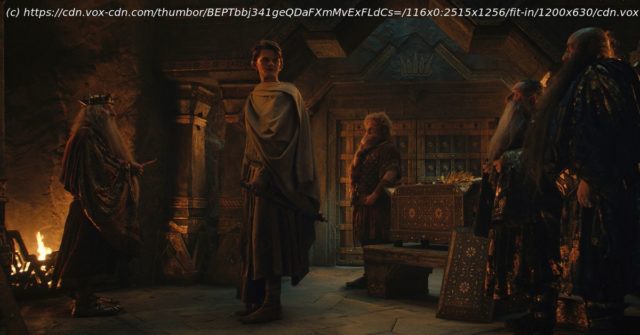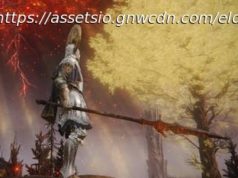After „Udun,“ Lord of the Rings: The Rings of Power takes episode 7, „The Eye,“ to explore the fallout of Mount Doom’s eruption and what it means for Galadriel, the uruk, and everyone else in Middle-earth.
With each new episode, The Lord of the Rings: The Rings of Power has put more and more emphasis on the morally ambiguous choices our heroes are forced to make. Episode 6, “Udûn,” presented the explosive fallout from many of these choices, with the first major clash between good and evil culminating in large-scale death and destruction. Sensibly, director Charlotte Brändström and writer Jason Cahill don’t try to top the pyrotechnics of “Udûn” in episode 7, “The Eye,” instead devoting their hour of run time to unpacking the aftermath of everything that’s happened. The result is an action-lite installment that forces Middle-earth’s would-be saviors to weigh up their personal level of responsibility — not just for what has already happened, but for what will happen next, too.
Even those characters who played no direct role in the events of “Udûn” can’t escape Brändström and Cahill’s meditation on obligation and outcome in “The Eye.” Take Durin IV (Owain Arthur), who suffers increasingly severe consequences after refusing to roll back his earlier decision to stand by his brother from an elven mother Elrond (Robert Aramayo). Durin’s reasoning here is morally unassailable — condemning your friend and his entire race to certain death is a decidedly shitty thing to do, after all — yet the episode ends with him bumped from the line of succession, mulling over whether to oust his old man.
It’s an effective bit of plotting by Brändström and Cahill, even if you won’t find anything remotely like it in The Lord of the Rings or its appendices. J.R.R. Tolkien paints a rather more flattering portrait of Durin III (Peter Mullan) in his novels, and what little we know about Durin IV doesn’t include any insurrectionist leanings. But Tolkien also doesn’t explicitly rule out a Battle of the Durins, and the concept ultimately works because it’s grounded in key themes from the books, like friendship and cross-species cooperation. It also gives Mullan a chance to show off his character-acting chops, through moments such as Durin III sharing a memory of his sickly son as a sickly baby that go a long way to developing what risked being a thinly sketched part.
Losing his right to the throne wasn’t the worst knock-on effect of Durin IV’s unsanctioned mithril mining efforts, though. The Rings of Power episode 7 reveals that the dwarven prince’s digging just woke up Durin’s Bane, otherwise known as the balrog from The Fellowship of the Ring. It’s a suitably ominous bit of foreshadowing that also doesn’t quite track with Tolkien’s established canon (Durin’s grandson ended the balrog’s nap in the books) but nonetheless feels justified in an episode so strongly focused on the unforeseen blowback of tough decisions.






